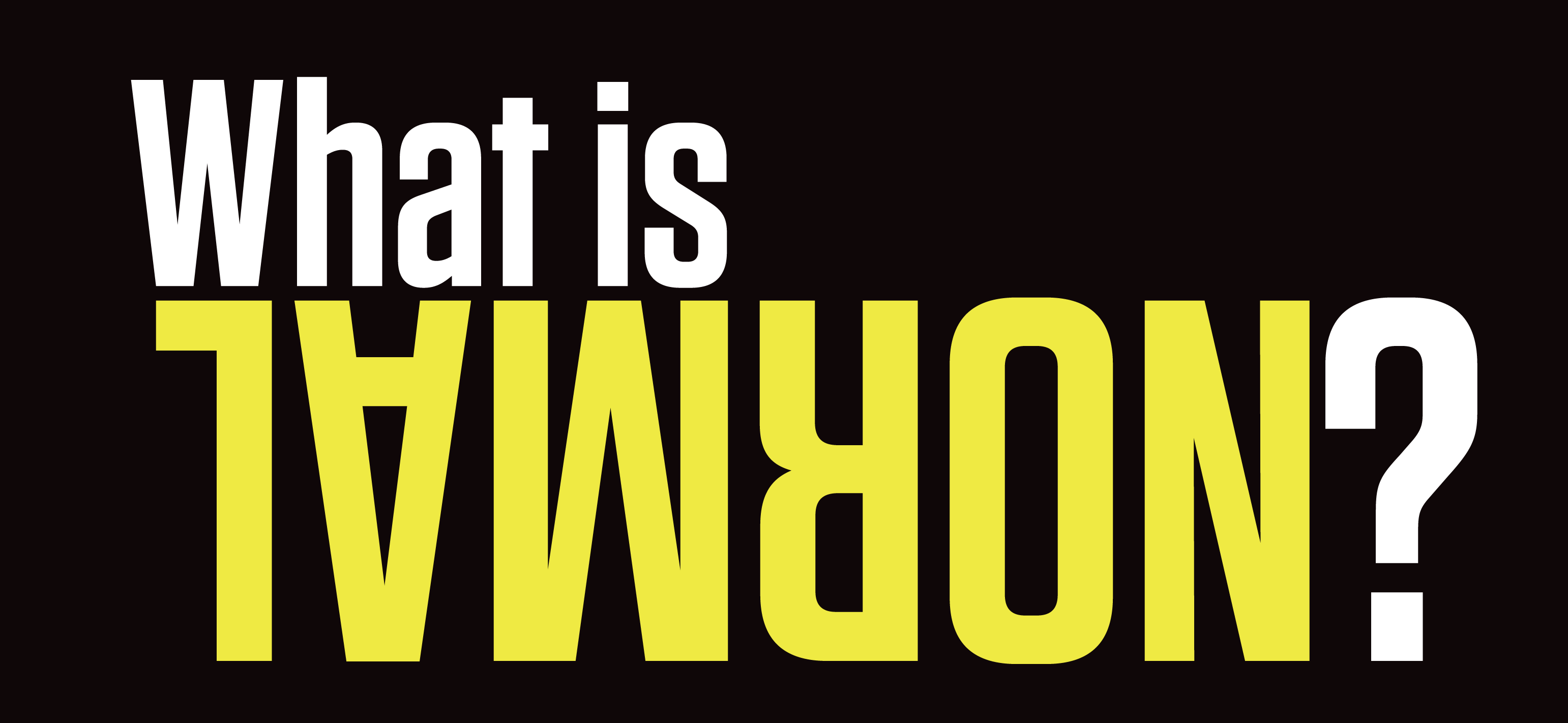This one time in one of my companies, an employee said to me, “You’re not like other leaders. You’re normal”
This bugged me.
A lot.
It bugged me so much that I’m writing about it now, well over a decade later.
Yeah, I guess I hold on to things for awhile.
But seriously, am I normal?!
Do I want to be normal?
What does it actually mean to be normal and “not like other leaders”?
These are the questions I’ve asked myself and, as it turns out, they are exactly the ones we are going to explore together.
How fun.
Don’t worry though. In the end, this isn’t about me as much as it’s about you. But let’s not jump ahead quite yet. In order to get to you, we’ve first got to talk about my skin.
Me and My Skin
I spent a really long time feeling uncomfortable in my own skin.
I always knew who I wanted to be, but I wasn’t ever really sure who I actually was.
(Editor’s Note: That’s a damn good sentence right there 👆🏽👆🏽👆🏽. Read it again and contemplate whether it connects with you too).
I wanted to be a strong and confident leader who could inspire people to be their best.
I wanted to be great.
But inside I felt far less than great. ‘Strong’ and ‘confident’ were not the words I’d have ever used to describe myself.
So I did what any other normal everyday Imposter Syndrome feeling person would do: I tried to learn about leadership by copying others.
I read incessantly. I tried to use the 7 Habits of Highly Effective People in order to Win Friends and Influence People as I Dared to Lead and attempted to Get to Yes by Starting with Why.
I tried to remember all the advice I got from everything I read, but it was too darn hard. When the disparate philosophies were put together, none of them actually made any sense.
After all these self-help books, I still remained self-helpless.
So I devoured a massive amount of books about a massive amount of influential leaders. Richard Branson and Phil Knight. Andrew Carnegie and Henry Ford. And so many more.
I wanted to lead like the best of them. I wanted to be as great as the greatest.
But during this journey, I realized one important thing: some of the values of these “great leaders” were far different than my own personal values.
Let’s be frank…
- Andrew Carnegie was a douchebag.
- Steve Jobs was an asshole.
- And don’t even get me started on Adolph Coors and his progeny.
Whenever I was confronted with a situation at work, I’d ask myself WWGLD (what would a great leader do). But gosh darnnit, I didn’t know which leader was great or which answer to follow.
Should I listen to the lessons from the daily-planner guy or do I pay attention to the Nazi sympathizer fella? Do I learn from the leader who manipulated the media or the dude that continually demeaned people?
It was too confusing.
One thing became fairly evident: I wasn’t Branson or Knight or Carnegie or Ford or any of them.
I was me.
And apparently I was normal.
WTF.

What Is Normal?
In trying to understand what it meant for me to be a “normal leader”, I began by looking up the definition of normal. Here’s what I got:

Hmmmm. Seems a pretty low bar.
It should come as no surprise that this immediately sent me down a rabbit hole. (I spend so much time in rabbit holes it’s amazing I don’t sprout a fluffy tail.)
Can my nauseatic reaction to canned meat be considered a “serious mental health problem”?
What about high cholesterol, is that a “serious physical problem”? Cause if I get a heart attack, that seems like a pretty serious physical problem. So maybe by this definition, I’m not normal…?
Then again, if this is the definition of normalcy then it would mean all other leaders have serious physical or mental problems. Probably not true.
Time to move on.
I decided to fine-tune my search for normalcy and soon stumbled upon this gem of a definition:
While many use the term “normal” to categorize someone, something, or an act of behavior, “normal” doesn’t really exist.
Oooooh-kay.
This may present a bit of a metaphysical dilemma.
If my employee is saying I’m “normal” and not like other leaders, and if “normal” doesn’t exist, then, ergo, my leadership doesn’t exist.
In other words, by being a “normal leader” I’m not a leader at all.
That one’s gonna scar.
Apparently, my employee was giving me an underhanded compliment by validating my feelings of inadequacy. After all, great leaders are not normal or else we’d all be great leaders. If I were normal, there is no way I could ever hope to be a great leader.
This sucks.
I decided to throw in the proverbial towel right there and then, and call it quits.
Maybe I should become a truck driver. What was the name of that truck driving school? Truckmaster, I think it is.

Before I gave up on all of my leadership dreams, I decided to do one last search to understand what it means to be a “normal leader”.
And here is what I found from the good folks at ChiefLearningOfficer.com:
Leadership is not normal. Those who excel at it are often not normal. Normal people don’t want the stress and responsibility of leadership. Leaders need to remember that people don’t act like them, think like them and work like them.
<sigh>
Different, in a Normal Way
My wife says that I sometimes overanalyze things. In my defense, the route from point A to point B isn’t always a straight line. Sometimes it’s imperative that you slog through the mud, delve down dead ends and climb over walls in order to reach your ultimate destination. That’s just the way the mind works – kinda like a blind drunk driver with a bad sense of direction.
It took me many years, but I finally came to realize the secret to leadership.
What I was doing was wrong. I was reading about other leaders to understand how they did what they do. What I should’ve been doing is reading about other leaders to better understand the elements that can pertain to how I do what I do – and to disregard the rest.
You see, I believe in respecting people and empowering them. I believe in being kind and honest. I believe in helping people succeed by helping push them beyond their comfort zone.
If the best leader in the world means demeaning others or not caring about kindness then, well, I’m simply not interested in that role. I’d rather be normal.
I am not a Musk nor a Jobs nor a Gates. I am me, complete with my strengths and my flaws.
If that means I will be more remembered as normal, I’m fine with that. Because maybe normal can be great.
Maybe you don’t need to be the world’s best, and you don’t need to be bathed in mass media awareness to be great.
In my mind, the greatest leaders are the ones who can look within. They are the ones who understand the worst in themselves and work towards improving it. They are the ones who embrace the best in themselves and use it to bring out the best in others.
Some may say the greatest leaders are the Disney’s and Churchill’s of the world. But I say “pshaw” to that.
The greatest leaders are normal. They are mothers and fathers and school teachers and everyday everybodies who encourage and inspire others to be their best selves.
If being a “normal leader” means connecting with authenticity, honesty, and self-awareness, then I hope someday one of your employees tells you you’re normal too.
Hopefully someday soon normal will be the new normal when it comes to leadership.
Somewhat Relevant Quote
“A leader is best when people barely know he exists, when his work is done, his aim fulfilled, they will say: we did it ourselves.”
Lao Tzu, Chinese Philosopher
Random News
Dinosaur PTSD – Did you know a meteorite just landed in Texas?
Peepsi – If you think Peeps are nasty, wait’ll you drink one
Baya – The service dog who inspired the PAWS act is honored in her final flight
Lost & Found – Did you lose a dolphin skull? They found it at the Detroit airport.
